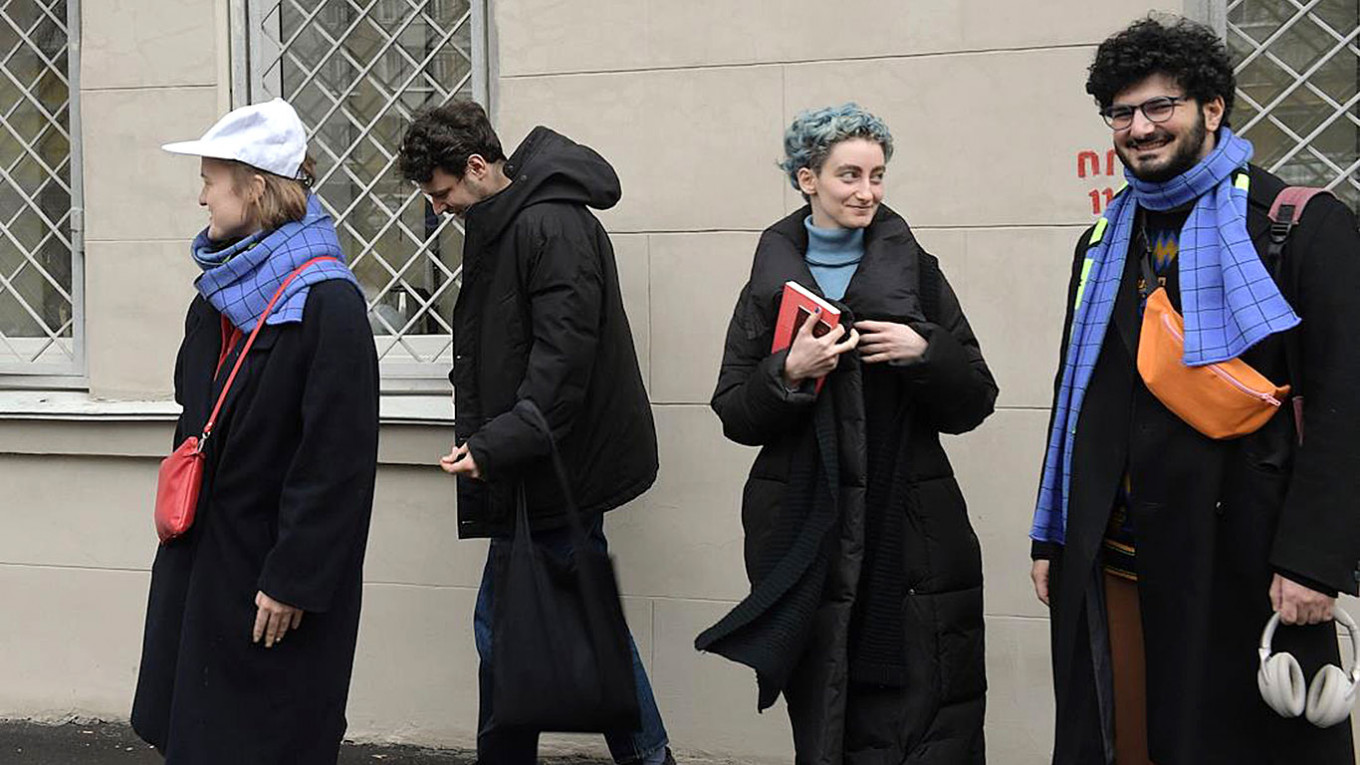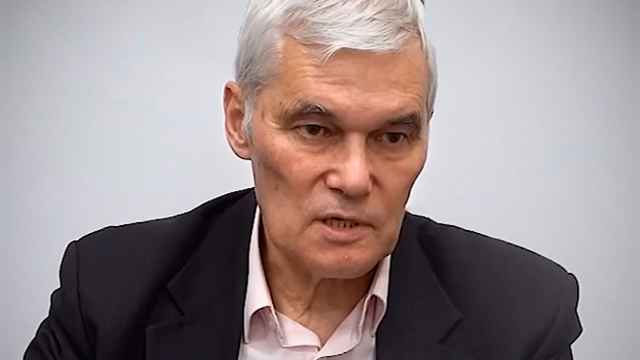Editors at prominent student news site DOXA said they were being held as “hostages” and criticized Russia’s war in Ukraine as their 11-month trial in Moscow came to an end, with expectations of long prison sentences.
The four journalists are accused of inciting minors to take part in illegal opposition protests and have spent almost a year under house arrest.
“We have no future,” Armen Aramyan, 24, one of the editors on trial, told The Moscow Times in a recent interview in Moscow. “I have tried to shield myself from hoping for one.”
While the charges against Aramyan, Alla Gutnikova, Natasha Tyshkevich and Vladimir Metelkin date from before the war in Ukraine, DOXA has been swept up in the unprecedented crackdown on independent media in Russia since the invasion got underway.
DOXA was blocked by the Russian authorities last month, and the four journalists who are on trial officially resigned as editors a week later.
Aramyan, Gutnikova, Tyshkevich and Metelkin all deny the charges against them, which relate to DOXA’s refusal to take down a video explaining why students shouldn't be afraid to voice their opinions at a 2021 protest in support of jailed opposition leader Alexei Navalny.
If found guilty, they could each be jailed for up to three years.
“This is the first time I have encountered so much censorship and I have also succumbed to fear. It's a catastrophic feeling,” said editor Gutnikova, 23, a cultural studies student at Moscow’s Higher School of Economics (HSE).
The risks for independent journalists and activists in Russia have risen rapidly since the invasion of Ukraine, in particular as a result of a new law that punishes “fake news” about the military with up to 15 years in prison. At least 60 criminal cases have already been opened against people accused of spreading so-called “fakes.”
While many independent journalists have fled abroad since the law’s introduction, the DOXA editors have been unable to leave, bound by a court order that only allows them to spend time outside of their homes between the hours of 8 a.m. and 10 a.m. They are also not allowed to use phones or the internet outside of that two-hour window.
“We are in a hostage situation,” said 28-year-old Tyshkevich.
All the four editors are vocally opposed to the Russian invasion of Ukraine.
“The bombing of maternity wards, schools, and other humanitarian infrastructure is not a part of my identity as a Russian,” said Metelkin.
And they believe that despite the crackdown, there are still opportunities to oppose the war from inside Russia. “It's still possible to take part in the fight against the ‘special military operation’,” said Tyshkevich. “There is an anti-war movement.”
DOXA was founded in 2017 by students at the liberal-leaning HSE, and grew into a prominent media outlet in its own right. It continued to operate even after HSE revoked its status as a student organization in 2019.
In particular, the outlet’s journalists are known for their investigations, which have included exposes about systemic sexual harassment at top Russian universities and politically motivated firings at HSE.
The judge in their trial is likely to sentence the four editors in the coming days, and there is little reason to expect leniency.
Each of the young journalists says it is difficult to imagine what prison will be like.
“I have a hard time reading about the women's prisons,” said Tyshkevich. “I just can't bring myself to do it.”
A Message from The Moscow Times:
Dear readers,
We are facing unprecedented challenges. Russia's Prosecutor General's Office has designated The Moscow Times as an "undesirable" organization, criminalizing our work and putting our staff at risk of prosecution. This follows our earlier unjust labeling as a "foreign agent."
These actions are direct attempts to silence independent journalism in Russia. The authorities claim our work "discredits the decisions of the Russian leadership." We see things differently: we strive to provide accurate, unbiased reporting on Russia.
We, the journalists of The Moscow Times, refuse to be silenced. But to continue our work, we need your help.
Your support, no matter how small, makes a world of difference. If you can, please support us monthly starting from just $2. It's quick to set up, and every contribution makes a significant impact.
By supporting The Moscow Times, you're defending open, independent journalism in the face of repression. Thank you for standing with us.
Remind me later.






